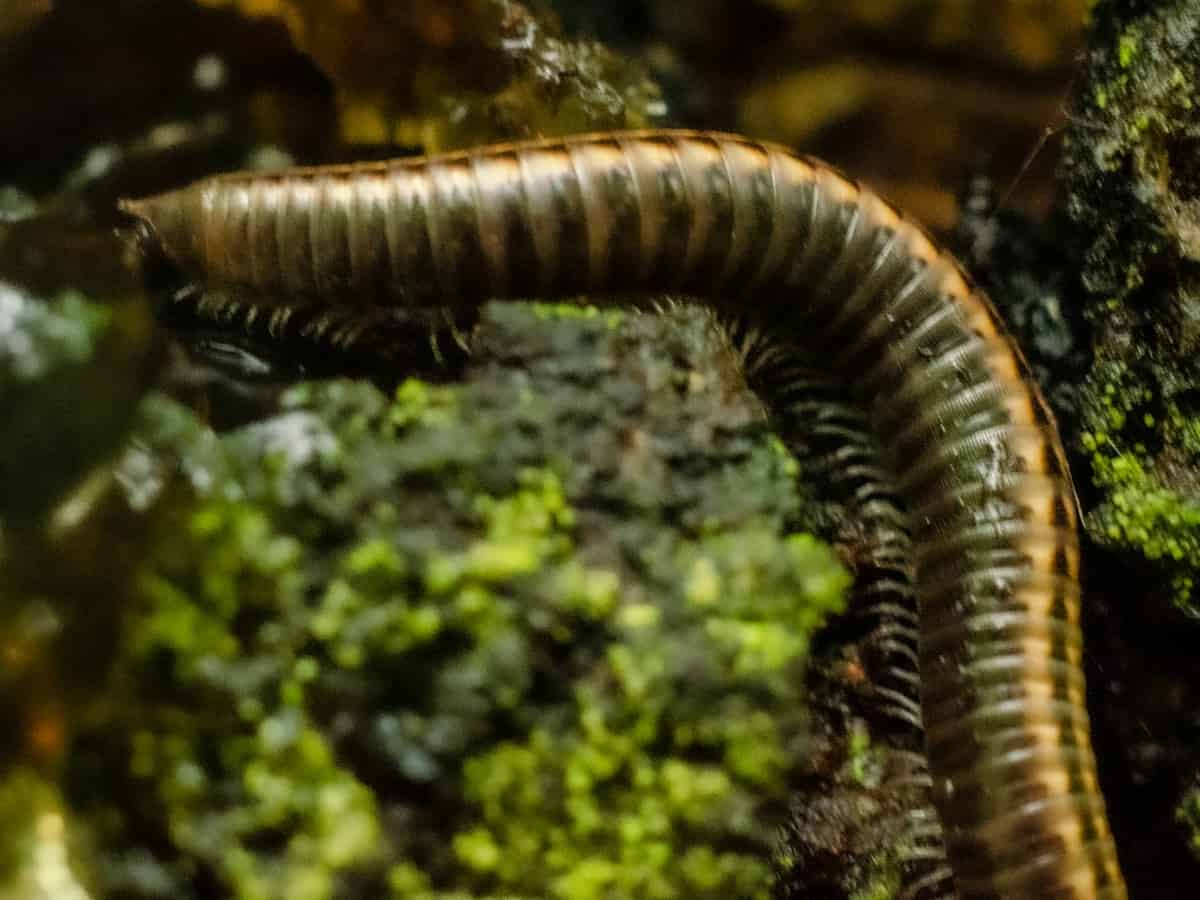If spiders make you nervous, centipedes will make you even more so. Even among insects, centipedes can be strange and unsettling. Its unusual, flat body, an abundance of long, spindly legs that bear its name, and its wormlike gait can frighten you when it scutters across your floor.
The most prevalent species of centipede in American homes, in contrast to their cousins from the south, is generally harmless and in some cases even helpful. They are proficient in taking down other bothersome insects such as termites, flies, roaches, and silverfish.
Nonetheless, the emotional impact of a centipede infestation in your home or business is sufficient reason to implement centipede control measures.

Although they belong to the same arthropod family as arachnids and crustaceans, centipedes are not considered insects.
Centipedes are myriapods, which are long, multisegmented animals with numerous legs. And, contrary to their name, they do not have 100 legs; rather, they can have as few as a few dozen or as many as 300.
A centipede’s color can range from yellow to dark brown, depending on the species. The house centipede is the most common type of centipede encountered by homeowners and business owners. This is due to the fact that it is the only centipede that can complete its entire life cycle indoors.
Centipedes are hunters but, unlike termites, which can cause damage to your home, or spiders, which can endanger you, they are unlikely to harm anyone.
Despite their frightening appearance, centipedes are not very dangerous. They are mostly classified as “nuisance pests.” Although they have poisonous fangs, they are not powerful enough to pierce human flesh.
House centipedes do, however, occasionally bite in self-defense, which can cause some localized pain and swelling that is comparable to a bee sting in that it may cause slight discomfort but shouldn’t cause permanent harm.
Centipedes prefer dark, moist environments. Outside, they live beneath decks, stones, mulch, or decaying logs and leaves, and inside, they can be found in places that resemble their outside environments to some extent.
Bathrooms, laundry rooms, closets, crawl spaces, basement closets, and occasionally tubs and sinks are examples of such places.
Therefore, the best defense against centipedes entering your bed is to reduce the humidity in your bedroom and eliminate all sources of food and water.
The only reason centipedes are drawn to beds is to find other resources and habitats; they are not looking for a human host. Keeping your bathroom and bedroom less humid is a surefire way to keep centipedes out of your space.
Inspecting your bedroom may also reveal food sources for centipedes, such as the ants, cockroaches, and spiders that may be present there. Exterminating these pests will naturally chase the centipedes away.
Unlike termites, centipedes do not consume wood or dig tunnels through it. Thus, you won’t be able to notice any indications of their infestation as long as you don’t see one. Finding centipedes under an item they were using as cover is the easiest method to identify an infestation.
House centipedes hide in damp, dark areas during the day and come out at night. If they lose their cover, they will run to the nearest dark place to hide.
Boiler rooms and bathrooms are common places to find them, particularly late at night. Discovering a house centipede may also point to the existence of a nearby plumbing leak.
Moisture and food are the two things centipedes seek out. Centipedes will most likely move in if you have a nice, damp garage or basement with lots of spiders and other prey. Therefore, other pests that may become centipede prey and humidity are the main things to be aware of. Here are some suggestions to keep centipedes at bay:
Remember that if you want to prevent centipedes, you should also work to keep other pests out of your home. Centipedes will come and go depending on food availability. Ensure that all food waste is properly disposed of so it won’t attract any other pests that may attract centipedes.
If you start seeing centipedes regularly or in large groups, it could be a sign of a larger pest problem. Centipedes are solitary creatures that do not build nests in human homes. Excessive centipedes are a sure sign that it’s time to call the exterminator.
When all else fails, hiring a pest control specialist is the best option when dealing with an infestation.
Titan Pest Control is a full-service pest control and extermination company that is fully qualified to handle insects and creatures.
We at Titan Pest Services offer both residential and commercial pest control solutions. Our clients include single-family homes, residential condominium complexes, luxury hotels, athletic stadiums, airports, food establishments, and other businesses.
Our reputation is solid, built on trust, dependability, and focused customer service. We adhere to the industry’s highest standards, seamlessly combining expert exterminator techniques with exceptional customer service.
If you have any questions or need help keeping your home pest-free, please do not hesitate to contact us.